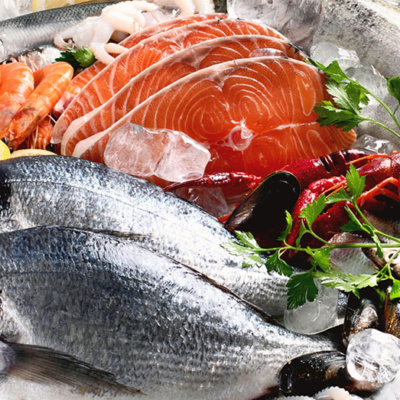Top of Mind News
- 3 Ways Dining Alliance Empowers Independent Restaurants
- Strategic Solutions for Foodservice Success: Source1 & Dining Alliance
- The State of Restaurants in 2024: Higher Costs, Higher Stakes
- Keeping Your Restaurant Safe from Fires
- How Customers Came to be Routinely Asked, ‘Cash or Credit?’

Poultry
Because of MLK Day and the cold conditions in the South that halted production, there is a shortage of goods overall. The availability of breasts in all sizes has decreased. Tenders are becoming less available. Demand for wings of all sizes has increased due to the NFL Playoffs, and production has decreased. The market for dark meat is still strong.

Beef
This market has increased as a result of the first winter storm. Rounds and chucks are in style. This week has seen a 180° turn in the appreciation of ribs and strips, which began last week. In the best-case scenario, tenderloins will maintain the present market pricing and follow suit. Due to the restricted crop, grinds are still in short supply; gains are observed on 80’s and source grinds.

Pork
It appears that butts have peaked and should start to decline. Large cold storage inventories are also contributing to the downward trend in rib prices. Be prepared to give in this market. Because there is little demand, boneless loins are likewise continuing to decline. Bellies are expected to gain strength over the month after showing modest support the previous week.
The Sea

Seafood
On 12/22/23, an executive order was announced concerning the limitations on the provenance of seafood raw materials. Proactively, we are collaborating with suppliers to guarantee the availability of impacted commodities. Great Lakes whitefish season begins with some good catches. In the upcoming months, shortages of lobster tails from the North Atlantic are anticipated.

Produce
The markets have sustained their upward trajectory as a result of a confluence of heightened domestic demand and reduced yields stemming from unfavorable weather conditions across various cultivation areas. It is projected that this pattern will endure until the month of January. The desert growing regions of Southern California and Western Arizona (Yuma) have experienced cold weather over the last two weeks, with several hours of field freeze in the early morning hours. Nighttime temperatures have risen slightly, with only traces of frost in the fields at this time, but due to the cold temperatures, expect to see the effects of the freezing temperatures in all items shipping from these growing areas. Supplies out of these regions remain steady, but markets have increased slightly.
Kitchen Sink

Dairy
This week, shell egg marketplaces are booming. Markets for barrels and blocks are expanding. It’s butter time. Prices for January Cream and Culture will be lower as a result of such market modifications.

Grain
The soybean oil market is moving sideways because there isn’t any meaningful market news. The market may rise swiftly if the big funds reverse their short positions, which they currently hold. Canola seed is weak and canola oil is flat. Due to a decrease in available stockpiles and a rise in exports, palm climbed marginally higher.






